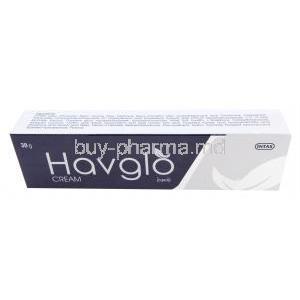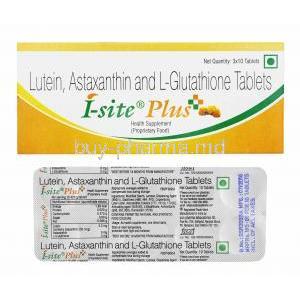Glutathione: The ‘Master Antioxidant’ That Your Body Needs
Glutathione is known as a master antioxidant which is made up of glutamate, cysteine and glycine which are three types of amino acids. Glutathione works to assist in the recycling and maximizing the function of other antioxidants such as vitamin E, Vitamin C, alpha-lipoic acid and co-enzyme Q10. When reduced Glutathione molecules exert the antioxidant effects on the oxygen, they oxidize and turn into Oxidized Glutathione. Glutathione is naturally synthesized in the body, however the levels of Glutathione in the body may decrease due to increased age. Glutathione also works together with co-enzymes to perform various roles. Glutathione levels in the body can also be effected by diseases such as, type 2 diabetes, hepatitis, parkinson's disease or HIV ( AIDS) .
Benefits of Glutathione to the well being
1. Works to fight oxidative stress - Low levels of Glutathione is linked to high oxidative stress which leads to diabetes, cancer, rheumatoid arthritis and other conditions. Therefore a healthy level of Glutathione is necessary to protect the body against oxidative damage,
2. Helps control inflammation - Glutathione works to regulate inflammation by stimulating and inhibiting the body's immunological response.
3. Keeps age related health problems in control - Improved Glutathione synthesis through higher dietary cysteine intake can help prevent age related health issues such as muscular or bone issues.
4. Works to Manage Parkinson's and Alzheimer's disease - Both Parkinson's and Alzheimer's are linked to oxidative stress and also low levels of Glutathione. By increasing the amount of antioxidants in the body it will help to slow down the progression of these neurodegenerative disorders.
5. Works against Infections - Glutathione works to fight against viral, microbial and parasitic infections. Glutathione also works to enhance the immune systems activity.
6. Manages Autism - Children with autism have Low levels of Glutathione which causes higher risk of neurological damage caused by oxidative stress
7. Works to reduce the effect of Type 2 diabetes - hyperglycemia can get uncontrolled which can lead to low Glutathione levels and higher oxidative stress which can cause tissue damage
8. Heart Health Improvement - Increased Glutathione levels can reduce the risk of cardiovascular disease and heart attacks
9. Improves skin health - Reduction in the oxidized forms of gluthione may help reduce the appearance of wrinkles and work towards improvement of skin elasticity
10. Benefits in the treatment of Psoriasis - Psoriasis is an autoimmune disease which is linked to higher levels of oxidative stress and systemic inflammation. Increase of Glutathione levels can help with the treatment of psoriasis.
11. Prevention of Anemia - Glutathione assists in increasing red blood cells levels which makes it important in treatment and management of patients with kidney disease
Glutathione Deficiency is linked to various health problems
Glutathione deficiency causes oxidative stress which then can lead to many health problems. In a study published in the Journal of Inherited Metabolic Diseases it should that deficiency of Glutathione directly contributes to mitochondrial diseases. It also effects the activity of the electron transport chain.
Low levels of Glutathione is also linked to idiopathic pulmonary fibrosis. Low levels of Glutathione are also observed in people with the Human Immunodeficiency virus (HIV) infection. Based on a 2012 study called Clinical and Developmental immunology, it was discovered that people with HIV infections have low levels of Glutathione which leads to decrease in anti oxidant activity which then causes loss of the immune function in HIV patients.
Low Glutathione levels can also effect other diseases such as Liver disease, cancer, stroke, Alzheimer's disease, diabetes and also heart issues.
Side effects when taking Glutathione
Glutathione can cause some side effects if not consumed properly, some of the side effects it can cause are, Abdominal cramps, bloating, flatulence, diarrhea, or allergic reactions, such as itchiness or rash.
Healthy Glutathione levels can also be maintained as we adopt a healthy lifestyle. Consumption of foods that have the precursors of Glutathione is the best way to stimulate the production of antioxidants in the body. By eliminating, processed foods and sugar from the diet can also lead to less oxidative stress. Including exercise in a daily routine will also increase body's ability to produce Glutathione.
Frequently asked questions
1. What does Glutathione do in the body.
A : Glutathione works to protect the cells in the body against oxidative damage. Glutathione also maximizes the performance of other antioxidance including vitamin E, vitamin C, alpha-lipoic acid and coenzyme Q10.
2. What is Glutathione used for?
A : Glutathione has powerful detoxification effects and also anti oxidant properties. Glutathione works well in the management of health issues such as respiratory problems, autoimmune disorders and neurodegenerative disorders. Glutathione is also used to improve skin health and also to delay the process of aging








